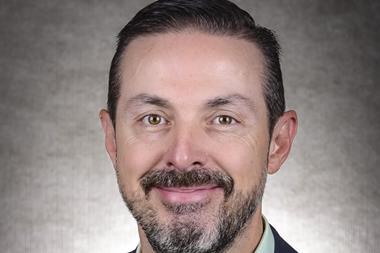Statistics show that one in four people in the UK will be caught up in an incident involving crime, violence or injury in the course of a normal working life. The likelihood increases significantly when travelling outside the UK. These facts alone give individuals sufficient cause for alarm, but the cost to commerce is just as worrying, and it has long term implications. The smallest incident can have a disproportionate effect on the cost to business.
Surprisingly, very few organisations put in place any real mechanisms to help reduce the risk to their employees when working either out of the office or abroad. No one can guarantee that employees will be completely safe at work, or while travelling, but it is possible to reduce risks considerably.
As with most things, commonsense is the order of the day. Most situations or threats can be minimised by understanding basic principles and applying simple rules.
Principle one: Prepare.
Do not make yourself an easy target. Unless you are unlucky, only easy targets are picked on.
The way criminals operate, whether at home or abroad, is illuminating. Their first priority is to get away with the crime safely. They assess potential targets to see if they are vulnerable. If they believe that someone is not vulnerable, they will seek a better victim who will be less trouble.
It is therefore essential not to look like an easy target. How can you do this? A good practical way is to imagine that you yourself are a criminal intending to attack or mug someone. Look around and identify the sort of person that you think would be an easy target. Perhaps it is a businessman talking on his mobile phone and casually carrying a laptop case, or a girl sitting on a bench engrossed in a magazine while her handbag is half-open beside her? If you take a few minutes to observe others, you will soon find that you can notch up a number of prospective victims. This is exactly how the seasoned criminal operates.
Now think of the people you discarded in your search. Perhaps it was a woman who was looking confident and aware and was carefully clutching her bag? Do everything you can to imitate those who are cautious.
Principle two: Plan.
Good background information and a little forethought will pay off tenfold.
Business travellers can be readily spotted in an 'easy prey' search. This is partly due to the way they act. Often they are uncertain, not sure of where they are, where they are going or even whom they should be meeting.
Before you travel, check that you have everything and that you are leaving yourself enough time to meet your commitments. Have a plan should things go awry. One of the quickest ways of losing your composure, and therefore your awareness, is being flustered because something unexpected happens and you have no fallback.
While at the hotel desk, use the local knowledge of the staff to plan your trips out. Discuss where is safe and where you should avoid, how long local journeys take, and how reliable taxis and public transport are. Taking a few minutes to orientate yourself will pay off in the long run.
If you are travelling by car the same applies. Leave plenty of time, and if it turns out not to be enough, have a fallback plan. It may be that you are late for a meeting, the petrol is running low or you are lost. If you let this upset you, you are more likely to make a rash manoeuvre or overreact to someone else's bad driving. Instead of diffusing the situation, you become angry, begin gesturing and road rage can ensue. By smiling, apologising and not reacting you can usually diffuse the situation. After all, if you are late, lost and nearly out of fuel, a roadside punch up will certainly not enhance your situation!
Principle three: Action.
Always have an option and act on it. If you do not decide and act quickly you will lose the initiative.
Unfortunately, occasions can arise when, despite all your preparation and planning, events overtake you and ugly situations either develop or confront you. Once in this situation you need to do something. In almost all cases your gut reaction on seeing something suspicious is usually right. It is therefore important to maintain control and act on those instincts.
The basic principle is - if in doubt, avoid. If you feel that a situation is becoming threatening the best course of action is to get away. Cross the road, move towards busy areas, into a shop, anywhere, just to get yourself out of danger.
If a mugger confronts you, give them your money or equipment. Remember, your life is more valuable than your wallet, handbag, laptop or any other item. Many people have been injured, even died, over a relatively small amount.
In the worst scenario, decide whether you are going to capitulate or get away. Muggers want to overwhelm you, they do not want a fight. If you are positive, break free and run, they will not follow. You must have the courage of your convictions and then do it. There is no time for debate.
It is not difficult to take sensible precautions. Be alert, look confident, stay safe.
Simple safety tips for business travellers
- Carry a second wallet with some out of date plastic cards and some small change that you can give to a mugger. Muggers want to get away. They don't usually stay around to count their ill gotten gains.
- Don't let anyone suspicious come within five feet of you. Be assertive and tell them not to come any nearer. If they still advance, you know that they have ulterior motives.
- Make sure any drinks you buy come in an unopened bottle or can. There are increasing cases of travellers being robbed after being served spiked drinks.
- If you get caught in traffic, make sure your vehicle doors are locked and the windows are closed.
- When signing into hotels, place your laptop bag on the counter first and then your briefcase. Better still, carry your laptop in a rucksack.
- If another driver is aggressively harassing you because you have made a mistake, smile and mouth 'sorry'. An apology will appease most people. There is no point in being aggressive. You must defuse the situation.
- If you suspect trouble and you have a mobile phone, make a show of calling the police.
Keith Miller is managing director of Pilgrim Resources Ltd which runs street awareness seminars and other courses, Tel: 01432 341 444, E-mail: enquiries@pilgrim-resources.com , Website: www.pilgrim-resources.com/streetaware



















